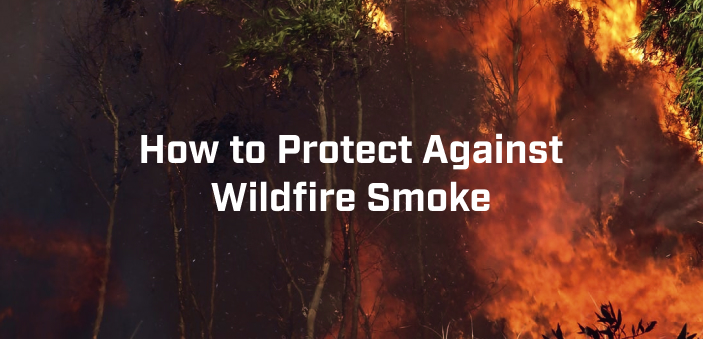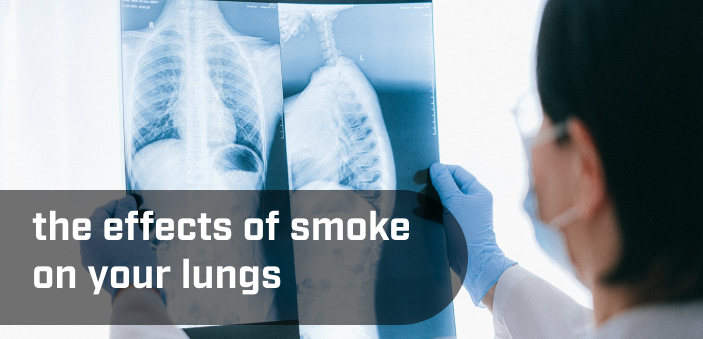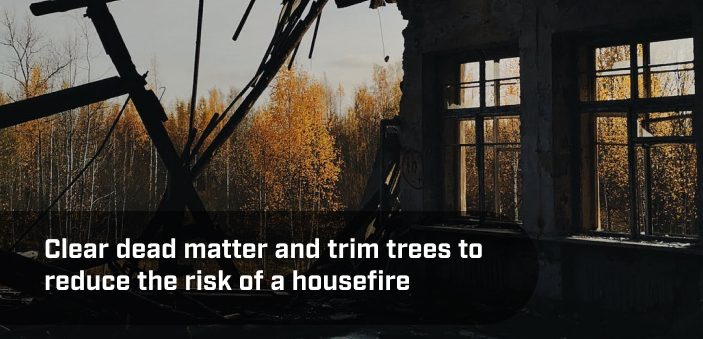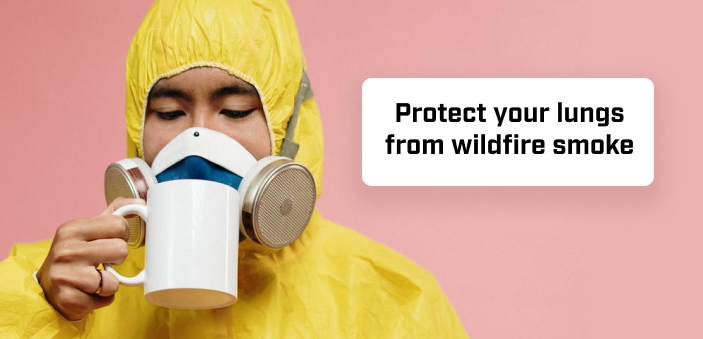How to Protect Against Wildfire Smoke

Wildfires are one of the most devastating types of disasters in the world. In the wilderness, they torch habitats and kill thousands of animals. They destroy large swaths of trees, which may not come back for decades after.
When wildfires reach a populated area, the damage can be multiplied. People are killed. Homes and businesses are reduced to ashes. Towns effected by wildfires are often never the same.
A wildfire is similar to a nuclear warhead in the structure of its effects. There’s an “impact zone”, where the fire directly burned. But the damage doesn’t end there. For hundreds of miles around, the ash and smoke from the fire can damage property, cause respiratory issues, and litter entire states in debris.
Wildfires are often unavoidable. They occur naturally, with lightning strikes in dry areas. While we should take every possible step in preventing and controlling them, it’s also important to have the right tools and strategies in place for when a wildfire affects your home.
What are the risks of breathing wildfire smoke?
Smoke of any kind is not good. Your lungs are specialized in taking clean air and using the oxygen to run your bodily functions. Breathing in smoke affects this process in two ways.
First, smoky air is not clean. Smoke consists of gas and very small particles. These contaminants can irritate the lining in your lungs, causing severe coughing fits. They can also inflame the membranes in your nose, sinuses, throat and eyes. This can cause a runny nose, tears, and burning sensations in your respiratory tract.

The second way smoke inhibits your breathing process is through lack of oxygen. Most deaths in housefires are caused by a lack of breathable oxygen, and not by the fire itself. The same is true for wildfires.
Smoke contains less oxygen, and more carbon monoxide, than regular air. If the smoke is dense enough, this can cause headaches, fatigue, brain damage, and death.
Smoke is especially damaging to people with preexisting respiratory conditions, such as asthma and chronic obstructive pulmonary disease. Children and pregnant women are also at a far higher risk when smoke of any kind is present.
Even short-term exposure to wildfire smoke can cause long-term damage. How do we prevent exposure and save our lungs?
Start with the Prevention of Wildfires
Everyone knows wildfires are devastating. But not everyone takes the correct precautions when trying to prevent wildfires.
To start, you should prepare your house in the event of a nearby wildfire. Ensure dead, dry plant matter is not accumulating around the sides of your house. If it is, clear it out with a rake and throw it away with your trash.
You should also be certain that there are not tree limbs dangling dangerously close, or even contacting, your roof or walls. Not only can this cause structural and cosmetic damage, but it also increases the chances of a wildfire catching on to your home.
If you’re in a high wildfire risk area, you should double check that your home insurance policy covers wildfires. Most do by default, but you certainly don’t want a lack of coverage to be a surprise.

The next thing to focus on is preventing wildfires from happening in the first place. This starts with your municipal or state government in the form of burn bans. A burn ban is a restriction, or outright forbidding, of controlled, personal fires. This can include bonfires, campfires, and sometimes even grilling. The recent weather, along with drought conditions and your geographics, have a huge bearing on whether or not your area will have a burn ban.
Check your city’s government website to see if a burn ban is in effect. If it is, you better obey it. Ignoring a burn ban isn’t just ethically wrong, it’s often highly illegal as well.
If there is no burn ban in place, or if your personal fire is within the confines of the ban, there are still things to keep in mind to keep your neighbors safe.
First, keep several forms of fire extinguishing methods within a few seconds’ reach while the fire is ongoing. The most popular methods are a traditional fire extinguisher, a bucket of dirt, or a container of water. It’s important to note that the type of fire you need to extinguish may require a different method.
Wood fires can be extinguished with any method, but a grease fire (which includes animal fat, motor oil, gasoline, etc.) requires special attention. NEVER throw water on a grease fire. It will spread very quickly, immediately.
When you are done with your fire, ensure it is put out entirely. NEVER leave a fire unattended.
Protect Yourself from Smoke
If a fire does break out near you, and you are seeing smoke or ash in your area, you need to protect yourself. Respirators are the best choice if you must go outside. They are specially designed to filter smoke, so they’re used by firefighters during rescues.
If you don’t have access to a respirator, a cloth or disposable mask is the next best option. It’s not perfect, but it will at least prevent larger particles from entering your airway. If the smoke is extremely thick, stay calm and try to control your breathing – your body can last a lot longer on short, smoky breaths than it can on long, smoky breaths.
The best thing to do if there is smoke in your area is to stay inside. Close all doors and windows, quickly seal any gaps with clothes or cardboard, and stay inside as much as possible.

One of the best things you can do before the smoke hits is change your air filters regularly. Ashy and smoky air WILL ruin your air filter within a few days. It’s important to make sure your air filter is as clean as possible before the smoke comes, and the best way to do that is to replace it every three months.
Visit Filter King’s online store to find your filter’s size and have replacements shipped right to your door every three months (recommended), or any other time frame you prefer.
Finally, make sure you follow the government’s guidelines on evacuation. We always hope the smoke is the worst we’ll get – all too often, that isn’t the case. Pay attention to emergency broadcasts and have a bag packed just in case there’s an evacuation order. If there is an order, follow it. No amount of property is worth your life.